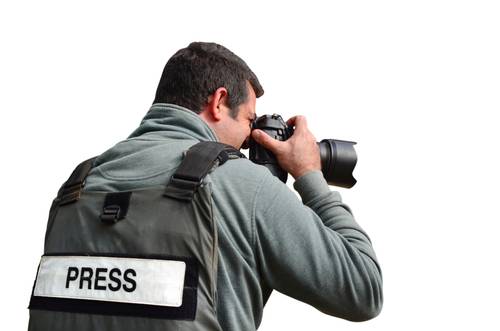One of the biggest threats to newsgathering in recent months has been a continued attack on the right to take photos and videos in public spaces. From “AG-GAG” laws (being introduced in mainly agricultural states and generally preventing the taking of photographs of farm or industrial operations even from public spaces adjacent to the farm or business, requiring anyone taking a photo or video showing the abuse of farm animals to turn that photo or video over to law enforcement or both) to laws protecting the “privacy rights” of celebrities, photography and videography are under assault.
That’s why AAN has taken the relatively unusual step of becoming involved in state and local matters. We joined a letter in opposition to Hawaii’s infamous HB 465, better known as the “Steven Tyler Act,” which would have protected celebrities engaged in “personal or familial” activities. The bill passed the Hawaii Senate (with a few modifications) but seems to have stalled in the Hawaii House of Representatives. We later joined an “amicus letter” which was filed in support of the first photographer charged under California’s statute prohibiting reckless driving “with the intent to capture any type of visual image, sound recording, or other physical impression of another person for a commercial purpose”.
Now, we’ve stepped up in California again, in opposition to two bills introduced earlier this year: California Assembly Bill 1256 and 1356.
California AB 1256 proposes 2 changes to existing law. It would amend the current laws regarding the physical invasion of privacy and constructive invasion of privacy to almost make them “strict liability” offenses that would allow punishment anytime someone enters onto private property “with the intent to capture a photo, video recording or sound recording of someone engaged in a familial activity” or uses mechanical devices to take photos, video or audio when it otherwise might not be possible – even where the subject had taken no steps to protect his or her privacy.
It also proposes an entirely new law designed to prevent harassing or stalking behaviors by punishing anyone who “by force, threat of force, or physical obstruction that is a crime of violence, to intentionally injure, intimidate, interfere with, or attempt to injure, intimidate, or interfere with, any person attempting to enter or exit a facility or tries to “by nonviolent physical obstruction, to intentionally injure, intimidate, interfere with, or attempt to injure, intimidate, or interfere with, any person attempting to enter or exit a facility.”
California AB 1356 also addresses behavior perceived by celebrities as “stalking” or “harassing”. It would allow someone to sue under if he or she was being surveilled in a way that caused emotional distress, even if there is no reasonable fear for his or her safety or that if his or her family.
AAN joined 26 other groups on a letter drafted by the National Press Photographers Association in opposition to these bills. The letter notes that because these bills appear to apply to actions that are already prohibited by law, simply increasing the penalties for engaging in those actions. Furthermore, courts ranging from the United States Supreme Court to California trial and appellate courts have found somewhat similar laws to run afoul of the First Amendment to the United States Constitution and similar provisions in state constitutions.
The good news is that we appear to have been successful – for now. Earlier this month, the California Assembly Judiciary Committee designated both bills as “2 year bills” which means they will not be moved out of the policy committee and substantively reviewed and voted on until at least January 2014. While this is unlikely to be the end of the discussion, at least we have time to marshall our opposition to a greater degree.
Kevin M. Goldberg is an attorney with Fletcher, Heald & Hildreth and serves as AAN’s legal counsel.

